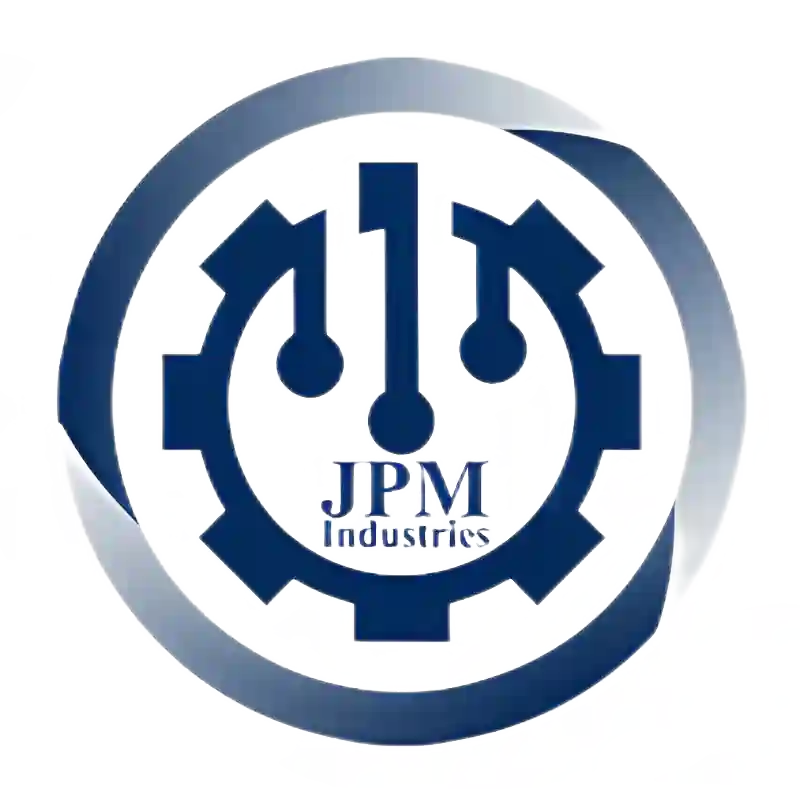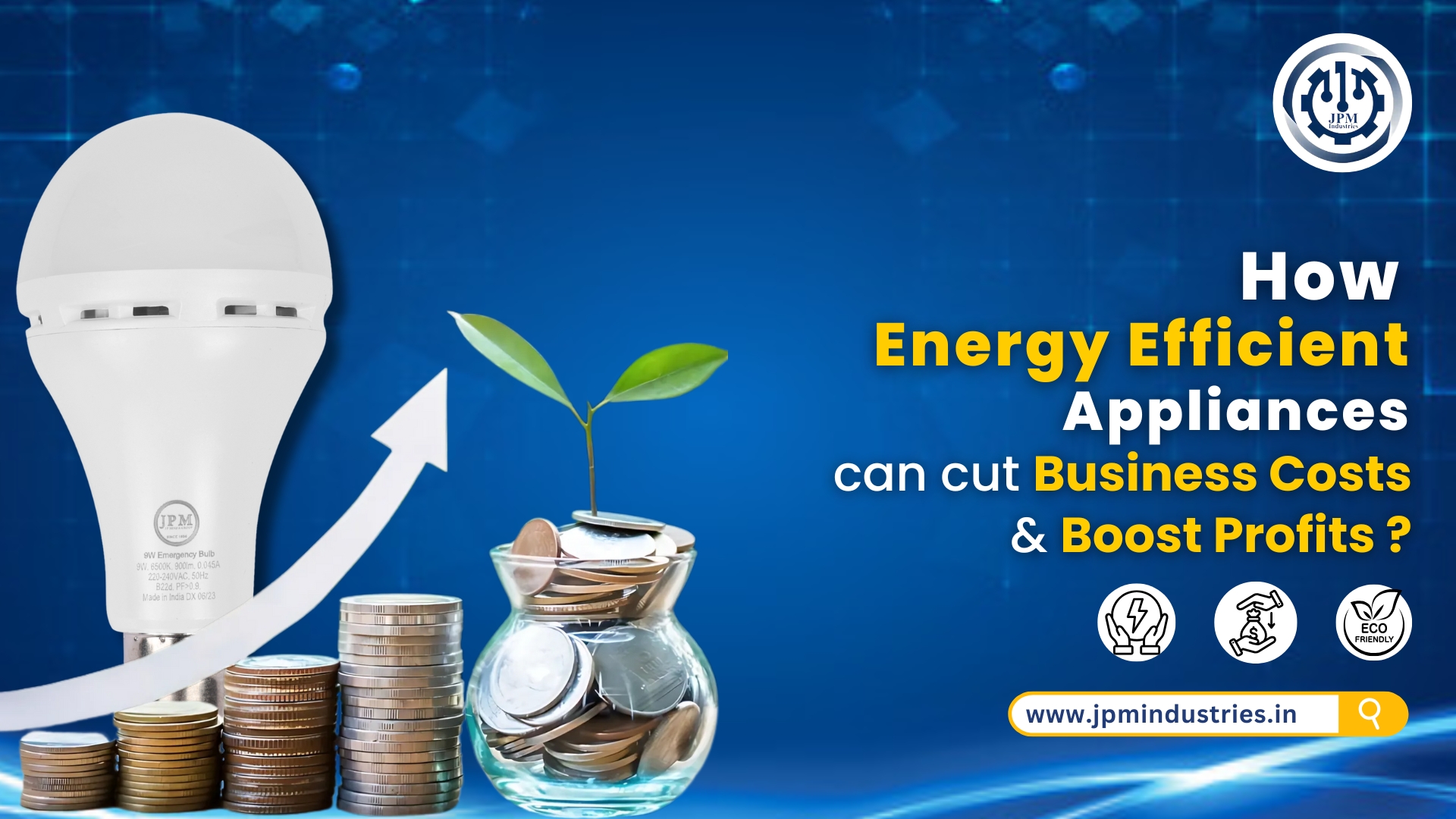Saving isn’t just important for your home; it’s crucial for your business too! By making deliberate choices to cut costs on non-essential items, you can save money and increase your company’s profits.
Handling every dollar with care is crucial for running a business. Switching to energy-efficient appliances is one of the most underutilized solutions for cutting costs and increasing profitability. Whether you run a restaurant or an office, switching to smarter equipment can lead to significant savings without sacrificing performance.
At JPMI, we believe that smarter choices lead to better business outcomes. That’s why we assist businesses like yours in transitioning to energy-efficient solutions that lower costs and enhance profits.
Why Energy-Efficient Appliances Matter?
There are many options most effective choice you can make in your business to pay less and save more. Energy-efficient appliances use less electricity, water, or gas to do the same job as standard models. That might not sound revolutionary, but over time, the cost difference adds up. For businesses running multiple appliances every day, even a 10-15% reduction in energy use translates to lower utility bills and higher profits.
Real Cost Savings
If your business spends $1,500 a month on electricity, switching to energy-efficient appliances could reduce that cost by 20%. This would save you $300 each month, which amounts to $3,600 in savings annually. When you multiply these savings by several locations or over a few years, the total becomes significant.
Additionally, many governments and utility companies offer rebates, tax incentives, or financing options for businesses that install certified energy-saving equipment, including ENERGY STAR-rated devices. These programs can help further lower the initial investment.
Boosting Profit Without Raising Prices
Energy savings go directly to your profit margin. Unlike increasing revenue through sales, which can involve higher marketing or labor costs, reducing utility expenses doesn’t require any extra work once the upgrade is made. You’re simply spending less to operate.
For startups or companies operating in highly competitive industries, this might be a significant shift. The more efficient your operations, the better you can price competitively, invest in growth, or pad your margins.
Better for the Environment and Your Brand
Switching to energy-efficient appliances isn’t just a smart financial move; it’s also a great brand-building tool. Today’s consumers care about sustainability. Showing that your business is Eco-conscious can win customer loyalty, attract new clients, and even help in hiring employees who value purpose-driven workplaces.
At JPMI, we support businesses in their efforts to become more sustainable while staying competitive. We help turn upgrades into impact.
Which Appliances to Upgrade First
Not all upgrades have the same impact. Focus first on appliances that run constantly or consume the most energy:
- HVAC systems: Half of the energy used in a building can be consumed by heating and cooling.
- High-efficiency models can drastically reduce costs.
- Commercial refrigerators and freezers: In restaurants or food-based businesses, switching to ENERGY STAR models can lower usage significantly.
- Water heaters: Tankless or efficient heaters reduce both water and energy consumption.
- Lighting: LEDs last longer and use up to 80% less energy than incandescent bulbs.
- Office equipment: Printers, monitors, and computers that are energy-efficient reduce overall power draw.
Long-Term Investment, Long-Term Returns
Energy-efficient appliances can pay for themselves rapidly, despite their potentially greater initial cost. Benefits such as lower utility bills, reduced repair needs, longer lifespans, and available tax incentives contribute to a strong return on investment (ROI). Additionally, newer models often include smart features like remote control, programmable settings, and usage tracking, which enhance convenience and control.
At JPMI, we provide expert advice, the latest technology, and strategic partnerships to guide you through the transition to energy-efficient appliances.
Conclusion
Energy efficiency isn’t just about saving the planet; it’s about running a smarter, leaner business. Upgrading to energy-efficient appliances cuts waste, slashes costs, and boosts profits in ways that compound over time.
Whether you’re a startup or an established company, investing in better equipment today sets you up for financial and environmental gains tomorrow. JPMI is here to help you get there faster and more effectively.
FAQs
Q1: Are energy-efficient appliances worth the investment for small businesses?
Yes. Even small businesses can save thousands annually, and many upgrades pay for themselves in under two years thanks to lower utility bills and available rebates.
Q2: How do I know which appliances are energy-efficient?
Look for ENERGY STAR ratings or compare energy usage labels when shopping. These make it obvious how much energy the gadget consumes.
Q3: Are there government incentives for upgrading?
Yes. Many local and federal programs offer tax credits, rebates, or low-interest loans for installing energy-efficient appliances.
Q4: Can switching appliances really help improve my brand image?
Absolutely. Consumers are increasingly loyal to brands that take sustainability seriously. Promoting your upgrades can show you’re serious about cutting waste and protecting the environment.
Q5: How often should I upgrade appliances?
Most appliances last 10-15 years. If yours are older, inefficient, or constantly breaking down, it’s probably time to upgrade to more efficient models. density. SEO-optimized for business, sustainability, and profit-related searches.







Very good
Good
Good
Good
Good
Good
Very good
Good
Very good
Very good
Awesome
Awesome
Awesome
Awesome
Good
Very good
Awesome
Very good
Awesome
Awesome
Very good
Very good
Good
Good
Awesome
Good
Awesome
Good
Very good
Good
Awesome
Good
Very good
Awesome
Very good
Very good
Good
Good
Awesome